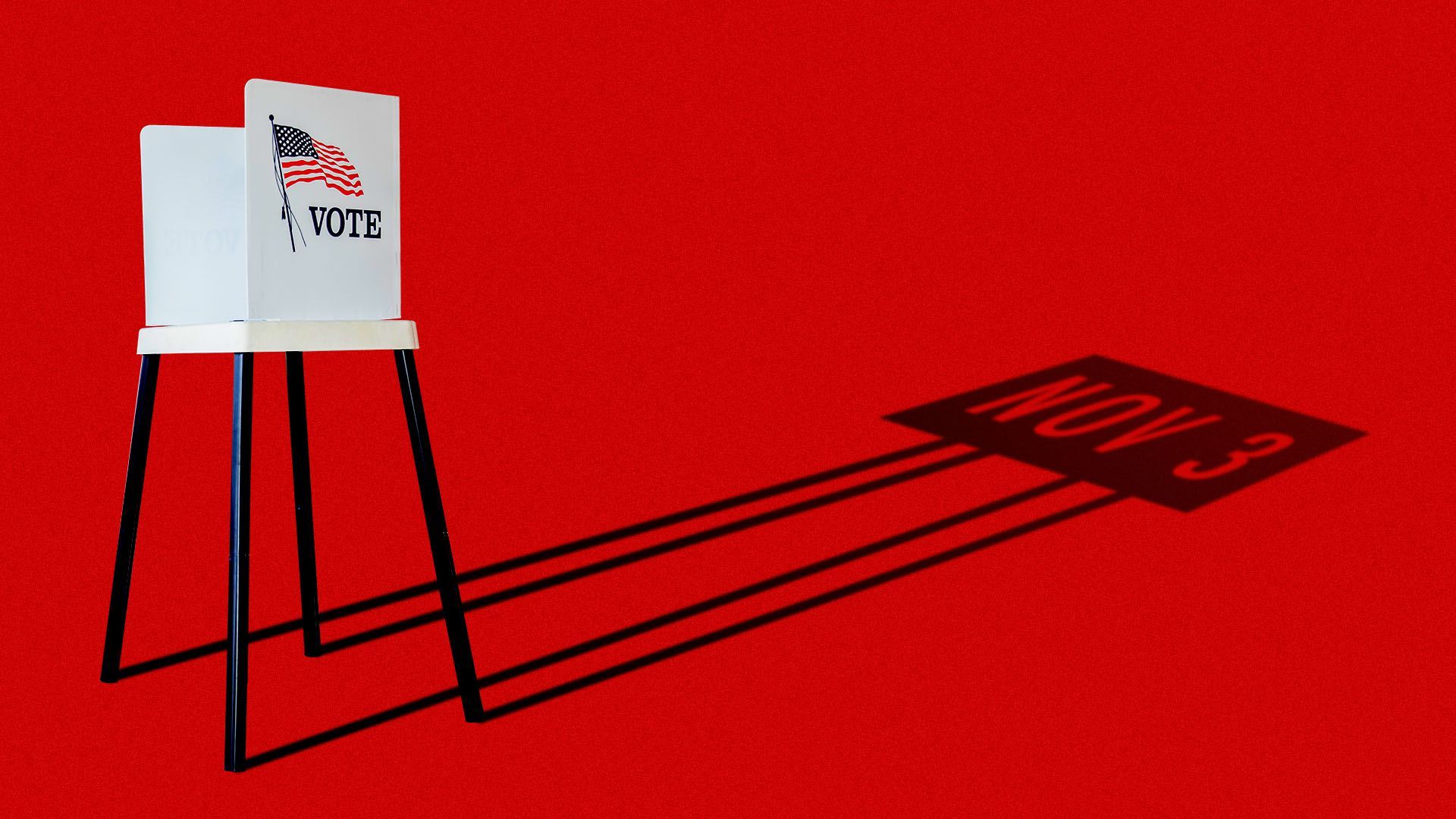More than 100 million Americans voted early in 2020
Add Axios as your preferred source to
see more of our stories on Google.

Illustration: Sarah Grillo/Axios
More than 100 million Americans voted early in the 2020 election across the U.S., according to state data compiled by the U.S. Elections Project.
Why it matters: The coronavirus pandemic and its resultant social-distancing measures prompted a massive uptick in both mail-in ballots and early voting nationwide, setting up an unprecedented and potentially tumultuous count in the hours and days after the polls close on Nov. 3.
By the numbers: 100,978,567 Americans voted early, whether in person or by mail.
- Hawaii (110.6%),Texas (108.3%), Washington (105.4%), Oregon (104.8%), Montana (102.4%), and Colorado (101%) all surpassed 2016's total turnout via early voting.
Other states that amassed a huge portion of their 2016 totals include:
- New Mexico: 98%
- Utah: 97.6%
- Nevada: 96.7%
- North Carolina: 95.4%
- Florida: 94.7%
- Georgia: 93.9%
- Arizona: 92.9%
- Tennessee: 89.6%
- New jersey: 88.7%
The other side: Some key battleground states are lagging behind the frontrunners. Pennsylvania, for example, only reached 40.7% of its 2016 total turnout — but this is the first general election for which the state has implemented no-excuse absentee balloting. Historically, only about 5% of Pennsylvanians have voted by mail.
Other key battlegrounds and their current early turnout against 2016 totals:
- Wisconsin: 64.7%
- Iowa: 60.5%
- Michigan 58.3%
- Ohio: 53.5%
Worth noting: Mail-in ballots face deadlines. While some states only require that ballots be postmarked by or shortly before Election Day, others require ballots to be received by election officials on Tuesday.
- Swing states Florida and Wisconsin, for example, require mail-in ballots to be received by 7 and 8 p.m., respectively, on Election Day.
- But the Supreme Court recently shut down Republican attempts to trim mail-in deadlines in both North Carolina and Pennsylvania.
- Many states also can't begin counting their mail-in ballots until Election Day, which is likely to cause a backlog in results — and could shift results in Biden's favor as more get counted in the following days.
Between the lines: Experts say it is essentially impossible to read anything into 2020's unprecedented turnout at the current moment.
- While high-turnout elections traditionally favor Democrats, the pandemic's effects have caused traditional models to be cast aside — making it difficult to draw any conclusions about the possible outcome of the election from these historic numbers.
Go deeper: When and how to vote in all 50 states
Note: The turnout figures cited in this article were last updated with the early vote numbers at 2 p.m. on Nov. 3.
